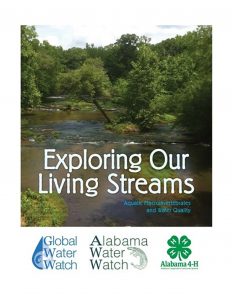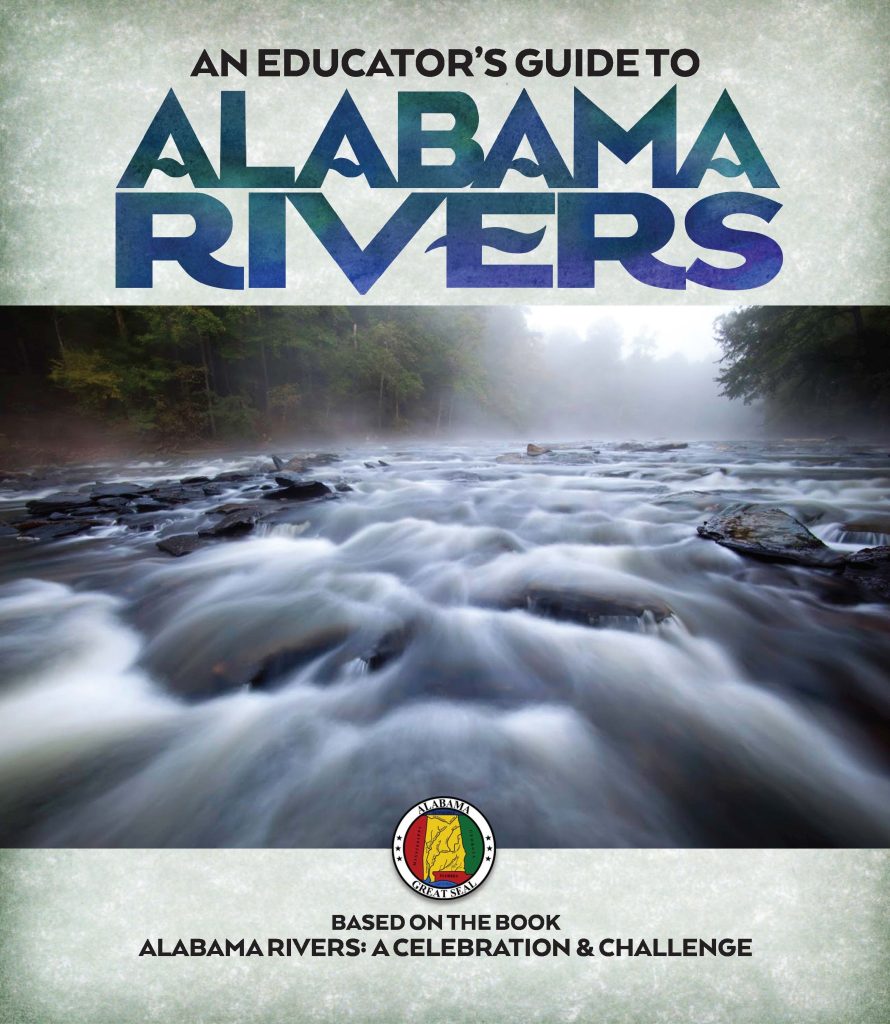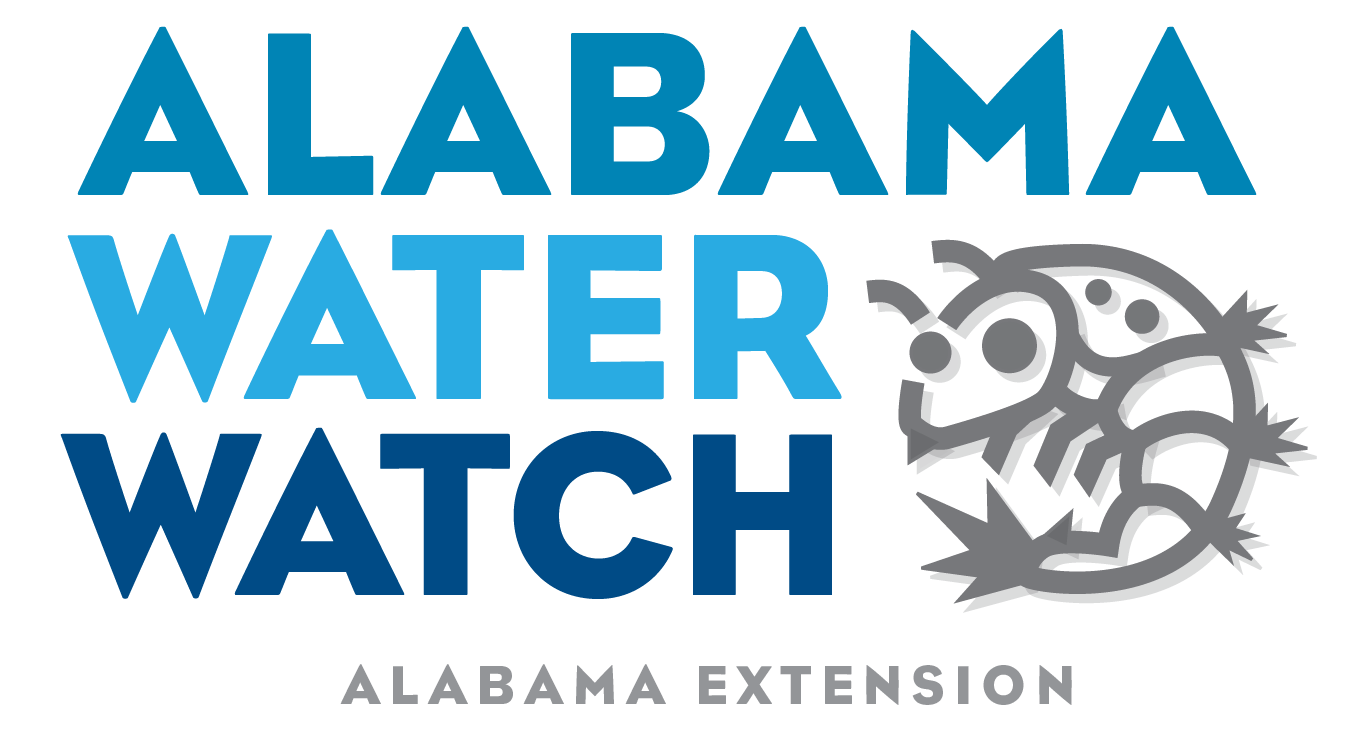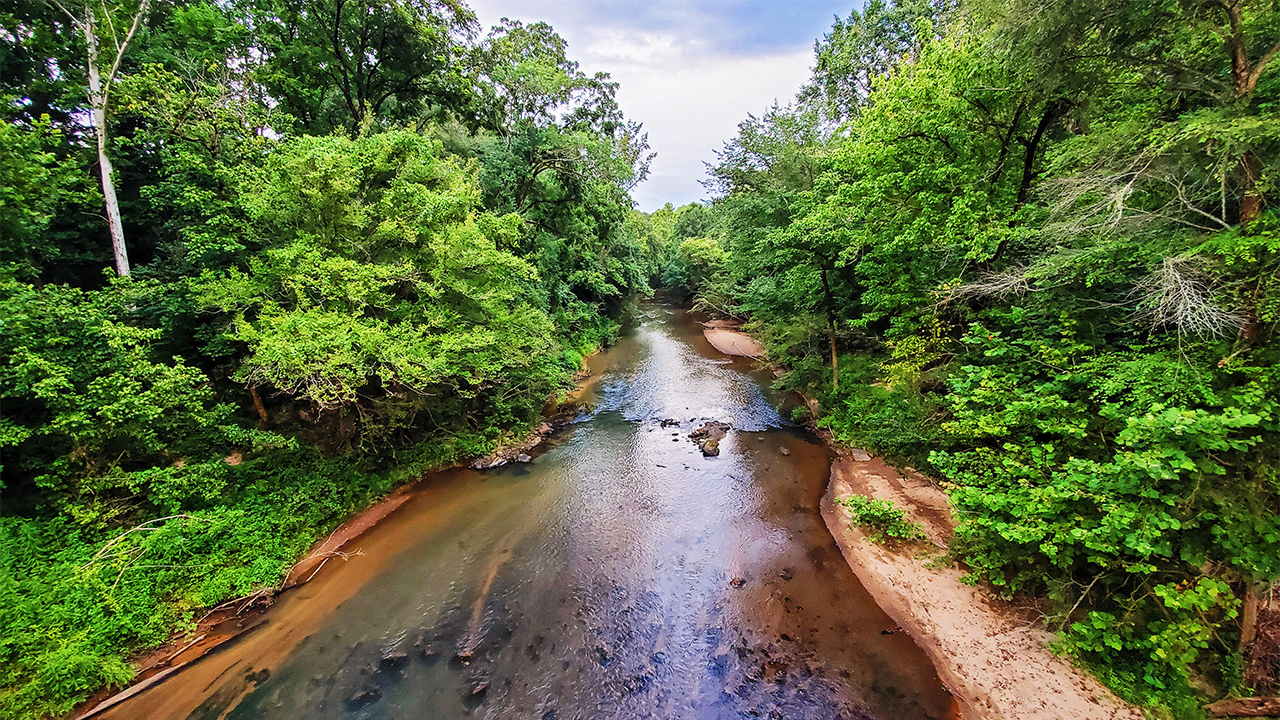All 4-H AWW curriculum is correlated to the AL Course of Study. Specific correlations are listed in the curriculum, and can be provided by AWW upon request. In addition, AWW is a State-Approved Stackable Credential for the Agriculture, Food, and Natural Resources Cluster. Find descriptions of all 4-H AWW Curriculum below.
Exploring Our Living Streams
The Exploring Our Living Streams curriculum provides hands-on activities aimed at helping students learn about the uniqueness of Alabama’s waters, pollution threats to our waters, and how to be a watershed steward. Furthermore, it prepares educators (teachers, informal educators, and volunteers) to train youth as citizen scientists who can collect and understand credible water quality data.
There are currently EOLS editions for Water Chemistry Monitoring and Stream Biomonitoring, and a Bacteriological Monitoring edition is being piloted in 2021 through a special project supported by a NOAA BWET Grant (http://wp.auburn.edu/aww/new-4-h-alabama-water-watch-project-exploring-pathogen-pollution-in-our-waters/) Each edition of EOLS includes content related to about the water environment, pollution, and stream ecology.
Educators gain access to the EOLS curriculum by completing an EOLS workshop during which they are also certified as AWW water monitors. Educators who work with the 4-H AWW Program to implement the curriculum can work with AWW to certify their students or club members as 4-H AWW monitors, allowing them to collect and submit water data. Educators also receive CEUs for their participation.


An Educator’s Guide to Alabama Rivers
An Educator’s Guide to Alabama’s Rivers is a companion guide to Dr. Bill Deutsch’s book, Alabama Rivers: A Celebration & Challenge. The goal of the curriculum is to guide educators as they use Alabama Rivers: A Celebration & Challenge to impart Alabama River related knowledge, inspiration, and challenges to young students throughout the state. The easy to use curriculum is correlated to the AL Course of Study Standards for Social Studies and Science for grades 4-7, and is easily adapted for upper grades and other subject matter. Development of the curriculum was supported by the Alabama Bicentennial Commission and MidSouth RC&D Council.

Educators who participate in Alabama Rivers Educator Workshops will receive copies of the Guide and Alabama Rivers book.

